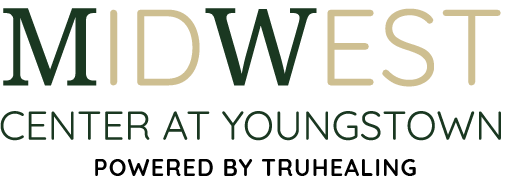Many people who struggle with drug addiction do not realize they are dependent until they begin to experience symptoms of drug withdrawal. When you see the signs of drug detox, it indicates that your mind and body have become dependent on drugs to function and feel normal. Withdrawal symptoms are also one of the biggest deterrents to quitting since they can be rather uncomfortable. Thankfully, you can get help with drug withdrawal management in Youngstown through a quality addiction treatment program.
At Midwest Center at Youngstown, we understand how uncomfortable drug withdrawal symptoms can be. Our medication-assisted treatment can help make your symptoms more manageable so that you can stay focused on getting better. Call us today at 844.544.0502 to learn more about how we can use medication and therapy to help you get through even the most challenging drug withdrawal.
What Are the Symptoms of Drug Withdrawal?
Once you have become dependent on drugs, your body will respond with uncomfortable symptoms if you cut back on your usage. This occurs since your body is detoxing from the substance it has come to rely on. If you see signs of drug detox when you try to cut back on or quit using them, you can be sure that you are dependent or addicted. Here are some symptoms of drug withdrawal to be aware of:
Physical symptoms
Drug detox can leave you feeling physically uncomfortable, somewhat like having the flu. You may experience symptoms like:
- Excessive sweating
- Chills and goosebumps
- Headaches
- Muscle aches
- Loss of appetite
- Extreme fatigue
- Nausea and vomiting
- Insomnia
Psychological symptoms
The changes that take place in the brain due to addiction can lead to varying degrees of psychological symptoms. Addiction can exacerbate your condition if you already struggled with a mental health disorder prior to drug use. You may experience symptoms like:
- Depression
- Anxiety
- Paranoia
- Hallucinations
Emotional symptoms
The symptoms of drug detox can also interfere with your mood and emotions. Some common symptoms you may experience are:
- Mood swings
- Irritability
- Crying spells
- Loss of interest in other people or activities
- Outbursts of anger
The above symptoms of drug withdrawal may be overlooked or dismissed as simply having a cold or being under stress. However, if you are using drugs and experiencing the above symptoms, it is worthwhile to consider whether you are dealing with drug addiction.
What to Do When You Notice Signs of Drug Withdrawal
Once you begin seeing signs of drug withdrawal, you know that you have developed a dependence or addiction. This indicates that you should seek professional help from an addiction treatment program. Here are some things to consider to help you manage drug withdrawal while you work on overcoming your addiction:
- To help make withdrawal symptoms more manageable, look for a medication-assisted treatment program. These provide FDA-approved medications that help reduce or eliminate the discomfort and cravings associated with withdrawal.
- If your drug withdrawal symptoms are severe, you may want to consider residential treatment or an intensive outpatient program. These offer more structure and support, which is often necessary for severe addictions.
- To address co-occurring disorders like anxiety and depression, look for a treatment center that offers dual diagnosis treatment. Mental health conditions need to be managed to reduce the risk of relapse.
With the help of medication-assisted treatment, you do not have to fear the discomfort of drug withdrawal symptoms. Medications can keep you more comfortable so you can remain focused on your recovery goals.
Midwest Center at Youngstown: Helping You Manage the Symptoms of Drug Detox
If the signs of drug withdrawal have made you realize that addiction interferes with your well-being, reach out to Midwest Center at Youngstown for help. Our medication-assisted treatment programs can help eliminate or minimize drug withdrawal symptoms so you can feel more comfortable as you detox. Contact us today at 844.544.0502 to enroll in one of our evidence-based drug addiction treatment programs.

